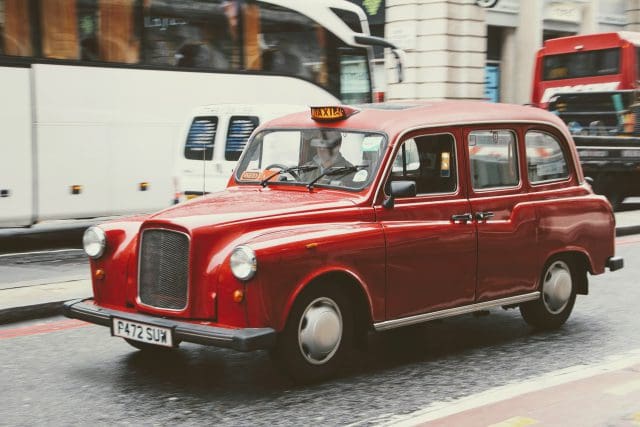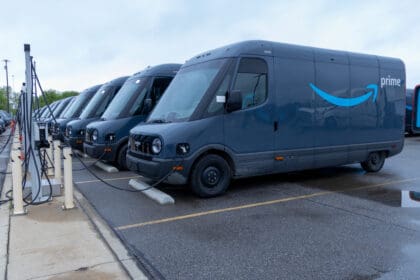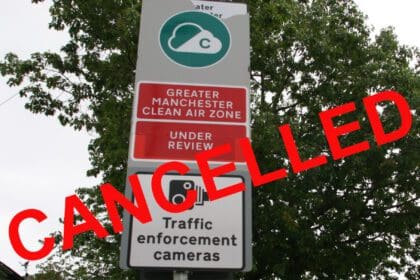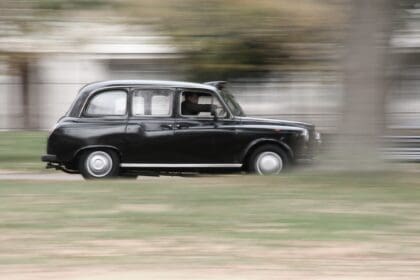Drivers of older, more-polluting vehicles in central London have had to pay the Congestion Charge, Ultra Low Emission Zone (ULEZ) and/or Low Emission Zone (LEZ) charges, which has already had an impact on professionals such as taxi drivers.
But from today, the ULEZ scheme has been expanded to include the whole of Greater London within the M25 – adding a further 5 million people. Thousands of drivers of older cars, vans and lorries now face paying the daily charge of £12.50 – on top of existing running costs such as taxi insurance and already-high fuel prices.
The aim is to get people to switch to cleaner vehicles to reduce air pollution which is at illegal levels in the capital.
Mayor of London Sadiq Khan launched the ULEZ scheme to get older, more-polluting vehicles such as taxis, vans and lorries off the streets, with electric vehicles and cleaner, more modern petrol and diesel vehicles being exempt from the charges.
But not everyone is in a position to simply replace their vehicle with a newer, environmentally friendly one. Those who do not live within the ULEZ but have to travel through it for work or their daily commute are understandably unhappy about the expansion.
And in the run-up to today’s expansion, hundreds of ULEZ number plate recognition cameras which are being used to police the zone have been damaged or stolen. The BBC reports that many of these are amongst the 2,000 installed in Outer London ahead of the expansion.
And it isn’t just residents and drivers who are angry. Five outer London boroughs last month failed in a High Court challenge to have the ULEZ expansion declared unlawful and the Evening Standard reports that only one of the seven councils bordering the capital has granted permission for City Hall to put up Ulez signs or cameras.
London’s Deputy Mayor for Transport Seb Dance criticised the town halls’ decision and said they were letting down residents.
He told the Standard that the councils would be to blame if motorists were fined because they were not warned about the ULEZ before driving into it.
The aim of the scheme is to reduce pollution by taking older petrol and diesel vehicles off the streets.
While licensed London taxis are exempt from ULEZ charges, older, more polluting taxis are subject to a 12-year age limit, with newer, cleaner taxis extended to 15 years. And all newly licensed taxis must be zero emission capable (ZEC).
There is financial help available to help people make the switch to cleaner vehicles.
All London residents can apply for up to £2,000 for scrapping a car or up to £1,000 for scrapping a motorcycle. For wheelchair accessible vehicles there is a payment of £10,000 to scrap or £6,000 to retrofit to the ULEZ standards.
One of the issues that taxi drivers and other motorists in London are unhappy about is that the mayor recently rejected the idea of relicensing a decommissioned Euro 5 diesel taxi which had been converted to LPG. The mayor said it did not meet the city’s licensing requirements and taxis that have already undergone conversion to operate on LPG are subject to a maximum age limit of 15 years.
But in Scotland, TaxiPoint reports that the latest round of grant funding from the Energy Saving Trust and Transport Scotland offers the chance of interest-free loans for new electric taxis, as well as funding towards the cost of converting Euro 5 taxis and vans to Euro 6. Grants are available to cover up to 70% of the cost of a retrofit.
While that is good news for taxi drivers in Scotland, those in the capital understandably feel hard done by and want a level playing field.
How will ULEZ affect you as a taxi driver?




